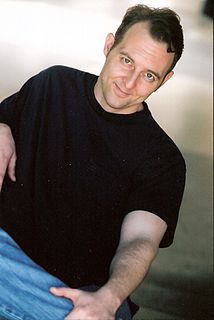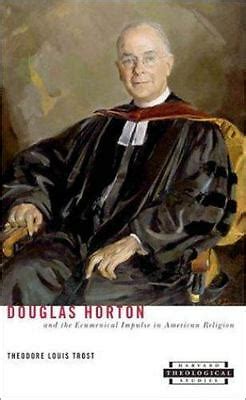A Quote by Walter Wykes
The absurdist is concerned with the search for meaning in the Universe. He believes this search to be meaningless--hence the disintegration of plot, character, and language in absurdist drama. Order is a falsehood that we, God, those who came before us, have imposed on a random universe. However, the absurdist is confronted with a curious paradox: though he believes the Universe to be meaningless, he cannot abandon the search for meaning--or he will die.
Related Quotes
Perhaps that is what life is all about—the search for such a connection. The search for magic. The search for the inexplicable. Not in order to explain it, or contain it. Simply in order to feel it. Because in that recognition of the sublime, we see for a moment the entire universe in the palm of our hand. And in that moment, we touch the face of God.
The point is this: If God does not exist, then life is objectively meaningless; but man cannot live consistently and happily knowing that life is meaningless; so in order to be happy he pretends life has meaning. But this is, of course, entirely inconsistent—for without God, man and the universe are without any real significance.
Our stories are all stories of searching. We search for a good self to be and for good work to do. We search to become human in a world that tempts us always to be less than human or looks to us to be more. We search to love and to be loved. And in a world where it is often hard to believe in much of anything, we search to believe in something holy and beautiful and life-transcending that will give meaning and purpose to the lives we live.
"What is the meaning of life?" This question has no answer except in the history of how it came to be asked. There is no answer because words have meaning, not life or persons or the universe itself. Our search for certainty rests in our attempts at understanding the history of all individual selves and all civilizations. Beyond that, there is only awe.
The search for God is a reversal of the normal, mundane worldly order. In search for God, you revert from what attracts you and swim toward that which is difficult. You abandon your comforting and familiar habits with the hope (the mere hope!) that something greater will be offered you in return for what you have given up.. if we truly knew all the answers in advance as to the meaning of life and the nature of God and the destiny of our souls, our belief would not be a leap of faith and it would not be a courageous act of humanity; it would just be.. a prudent insurance policy.
To most humans, a universe consisting of particles banging about and doing what they have to do seems cold, barren, and without meaning. Meaning, however, is not something that floats in space, permeating the universe like a nebulous, mystical cloud. ... Meaning arises out of the working of the human mind, and therefore exists only in the human mind. The meaning of existence is whatever you want to make of it.
One can imagine that God created the universe at literally any time in the past. On the other hand, if the universe is expanding, there may be physical reasons why there had to be a beginning. One could imagine that God created the universe at the instant of the big bang, or even afterwards in just such a way as to make it look as though there had been a big bang, but it would be meaningless to suppose that it was created before the big bang. An expanding universe does not preclude a creator, but it does place limits on when he might have carried out his job!
As the romance of manned space exploration has waned, the drive today is to find our living, thinking counterparts in the universe. For all the excitement, however, the search betrays a profound melancholy - a lonely species in a merciless universe anxiously awaits an answering voice amid utter silence.
If the universe were just electrons and selfish genes, meaningless tragedies ... are exactly what we should expect, along with equally meaningless good fortune. Such a universe would be neither evil nor good in intention ... The universe we observe has precisely the properties we should expect if there is, at bottom, no design, no purpose, no evil and no good, nothing but blind pitiless indifference.
As we shall see, the concept of time has no meaning before the beginning of the universe. This was first pointed out by St. Augustine. When asked: What did God do before he created the universe? Augustine didn't reply: He was preparing Hell for people who asked such questions. Instead, he said that time was a property of the universe that God created, and that time did not exist before the beginning of the universe.
To most theistic believers, human life can have no meaning in a universe without God. Quite sincerely, and with understandable yearning for a meaning to their existence, they reject the possibility of no God. In their minds, only a purposeful universe based on God is possible and science can do nothing else but support thistruth.





































